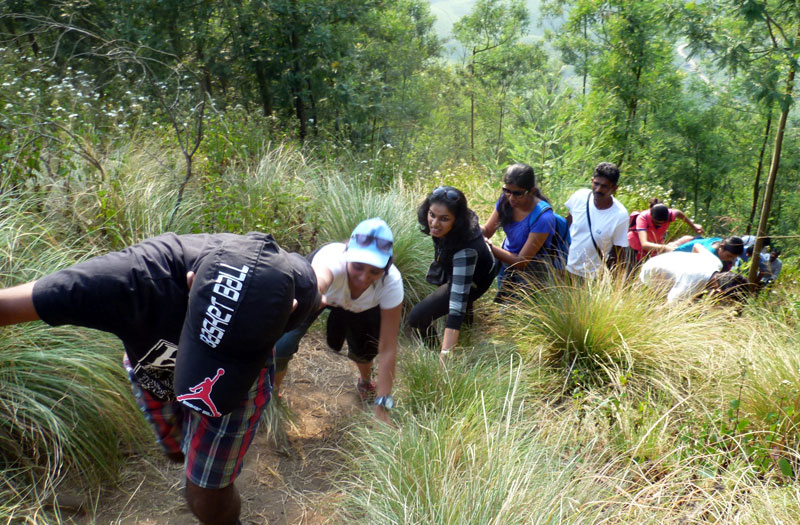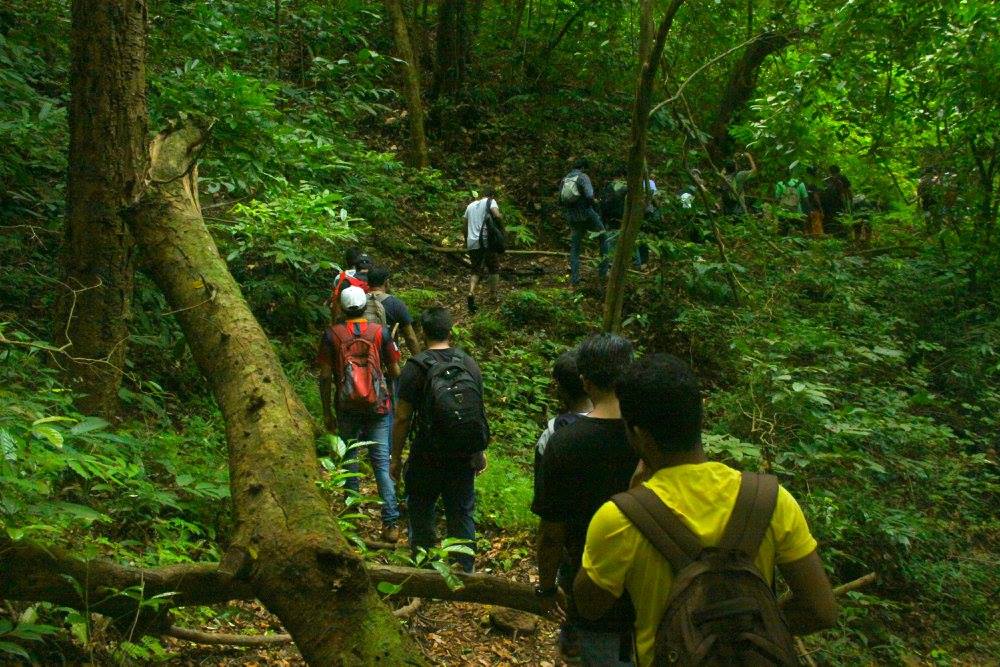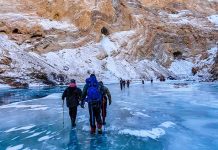Top 13 Hiking Tips for Beginners
If you are looking for an adventure, the mountain might be the place for you. It hides a lot of beauty that is often unknown to us. Hiking is not just a form of exercise. Hiking is a way to get to know yourself and a way to discover the nature in its original form. When you finally decide to take that path, you will probably ask yourself what we need to start a hike. As we venture through the woods, this article is designed to remind us of a few things before we decide to go on our trekking.
- Weather Condition
Weather plays the decisive role in your enjoyment of the mountains and the success of the hiking trip. Snowstorms, poor visibility, rain, fog and similar conditions are unfavourable for hikers, and can often be the cause of accidents during the trip. Before going out on your hiking trip, be sure to inform yourself what type of weather is expected in the coming days, because, based on that, you will know what kind of equipment and clothing to take.
Important: Never ignore the weather forecast as it can lead to dangerous situations that could be life threatening!

- Hiking equipment – What to bring?
This primarily depends on how many days you plan to spend on your trip, where do you plan to sleep and what time of year is it. You should also consider how many people will be present. If you plan to sleep in the house, cottage, log cabin, mountain home, etc., then you should not carry a tent and sleeping bags. Otherwise, that equipment is inevitable, but your luggage will be much bigger and heavier. In hiking, we must be thorough on what are the things to bring, it will be helpful if we will be bringing these essential items
- Map
- Compass
- Water
- Extra Food
- Rain Gear and Extra Clothes
- Fire-starters or Matches
- First-aid Kit
- Army Knife or Multi-Purpose Tool
- Flashlight and Batteries
- Sunscreen and Sunglasses
- Footwear
- Hiking Poles
These identified essentials are necessary for a successful hike. It does not only prepare you for the possible dangers but it will be your main weapon for the whole trip itself so that you can enjoy your escapade. Certainly, one of the most, if not the most important piece of equipment is hiking boots. Next important part of hiking equipment is the backpack. The size of the backpack is chosen depending on the situation. Don’t forget to bring hiking sticks, as they will ease your way through the mountain. Other important hiking equipment to highlight would be a cap, gloves. Sunglasses with UV filter, protective cream with high UV factor, and a map. Forget the map, you will find yourself wandering around like a lost sheep.
- Orientation
You should know how to use a compass. Sometimes that dictates a crucial moment between life and death. You’ve probably heard stories about people who got lost in the wild because they are not oriented which they cannot determine the direction of their movement. It is extremely easy to stray from the path, especially in adverse weather conditions. Don’t think it only happens to beginners. Experienced hikers can get lost too.

- Picking the right camping spot
At first glance, it may seem easy, but choosing a suitable place for camping can be a big problem.
- Placing Your Tent: put it in a place that is dry, protected from the wind, has trees near it, and is at least 2 miles away from the swamp. It is desirable to camp in the proximity of water.
- Avoid Rocky Grounds: avoid places with dense vegetation, and places populated by rodents. In the mountains, you should watch out for landslides of rocks, snow and blizzard
- Food and water
It is not so difficult to find water in nature. You can obtain the topographic map with marked sources or you can get the information from the local population. The real challenge is how to be confident that the water is drinkable. We found that some of the best ways to ensure clean water are to understand some of the best ways to purify water.
As for the food, you should take a sufficient amount of carbohydrates like fruits, grains, milk and bread. Carbohydrates provide energy to our bodies and they, usually, come in the form of sugar. It is, also, good to bring some chocolate or glucose sweets which can quickly restore your energy. If you are hunting for meat and need to kill the bacteria before consumption, it is imperative that you either know how to start a fire or invest in some of the best camping stoves
- Learn how to start a fire
If you don’t know how to start a fire, you should definitely learn. Everyone likes sitting by the campfire, singing your favourite songs or talking about funny life events. A campfire provides us with light, warmth, and heat for cooking. So let us make sure to find a good spot for it.
- Bring a cell phone
You should always start your trip with a fully charged battery and use it only in an emergency or life-threatening situation. Take note that bringing a mobile phone on a hiking trip is a must.
- Signal Reception: The signal received may be too weak to send a text message or call someone. It would, therefore, be advisable to carry a spare battery.
- Phone Placement: The mobile phone should be kept in the inside pocket of a bag and will only be used for emergencies or life-threatening situations.
- Bring some light with you
Even though you are planning to hike only during the day, bring a source of light with you. Something unplanned may occur, and if you stay on the mountain longer than intended, the descent will almost be impossible without the light. The possibility of finding a lifeguard in total darkness is, also, very small.
- First aid
It is the duty of every hiker to provide help for the injured persons, before the arrival of a doctor, in accordance with their knowledge, experience and capabilities. It will keep the injured alive and prevent worsening of the situation. Providing assistance should not be delayed. You should work with what you have and, at the same time, overcome the fear, stay calm, provide help fast, but not hastily. Do not forget to protect the victims from the cold. For a list of things that must be included in the kit, you may refer to this link: (http://www.wta.org/hiking-info/basics/like-your-life-depends-on-it-building-your-first-aid-kit)
- Stay together
Separating from your group can sometimes be very dangerous, especially for the new hikers who don’t know their way around. Sometimes, the mountain draws you to wander away from the main track to find its inner beauty. You should try to resist that call and stay with your friends, so you don’t get lost or injured.
- Don’t get exhausted
Exhaustion can cause death when all of our energy is consumed. Such examples are very rare because the human body has a variety of security mechanisms to defend itself from complete exhaustion. Eat regularly, drink plenty of water and rest accordingly. Dress warmly, because, in the cold conditions, physical energy is spent on heating the body and thus, unnecessarily wasted. Avoid alcohol consumption, as it accelerates the exhaustion.
- Bring something to defend yourself
There is a lot of wildlife in the mountains and you should try to stay away from it. Don’t try to feed them. You might attract unwanted predators that can harm you. There can be situations where you will have to defend yourself, so it might be a good thing to bring a hunting knife or something similar.
- Watch out for avalanches
Avalanches present one of the greatest dangers in the mountains. Generally, there are many misconceptions about avalanches, their formation, motion, etc. Basically, it all happens because of the ignorance and lack of information. Make sure to inform yourself about avalanches, as it will increase the chance of survival in the event of an accident.
References:
http://www.backpacking.net/beginner.html
https://www.nerdfitness.com/blog/2011/09/07/hiking/
http://greatist.com/fitness/know-before-you-go-hiking
http://figur8.net/sports/2015/12/28/the-hikers-code-advice-for-newbie-hikers/
http://www.iexplore.com/experiences/tips-tricks-hacks/experiences/hiking/articles/13-essentials-to-pack-your-hike
http://www.wta.org/hiking-info/basics/like-your-life-depends-on-it-building-your-first-aid-kit


















